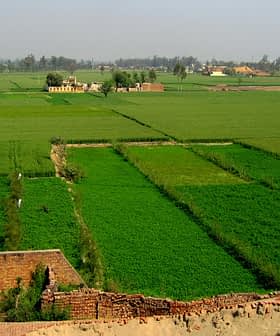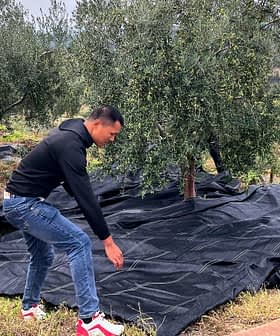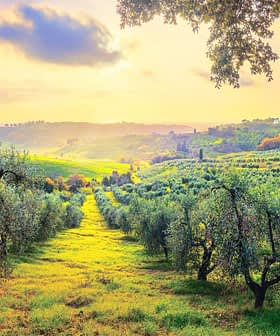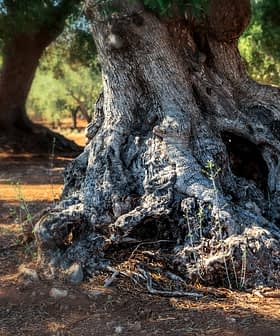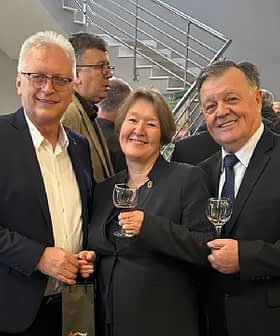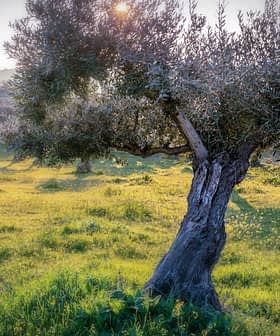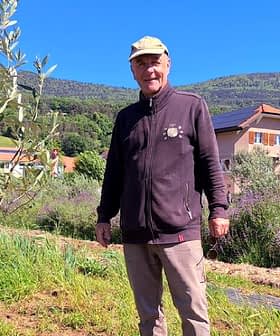Canadian Farmer Succeeds with Olives and Gives Kelp Seaweed Some of the Credit
Waterlea Farm on Pender Island in Canada has been growing olives for over a decade, with owner Andrew Butt aiming to produce the first made-in-Canada extra virgin olive oil. The farm’s success is attributed to factors such as the climate on Pender Island, the use of seaweed as a soil amendment, and the layout of the olive grove, with plans to expand production and potentially involve nearby non-commercial olive growers in communal milling days.
For more than a decade, Waterlea Farm has grown olives in the sub-Mediterranean climate of southwest Canada. On Pender Island, one of Canada’s Gulf Islands, farm owner Andrew Butt nurtures 100 olive trees to grow the fruit for table olives and the future goal of producing and selling the first made-in-Canada extra virgin olive oil.
The farmer planted his first olive trees in 2001 using varieties he ordered from California. The varieties which are currently producing well for him are Frantoio and Leccino. He’s also experimenting with Arbequina. Missions, too, were initially planted and failed early on. However, Butt left a few of the Missions in and the result pleasantly surprised him. “They recovered very well from the tough start they had,” he said. He still confirms, though, that the Missions aren’t nearly as resilient in his climate as the Frantoio and Leccino.
There are very few locations in Canada that could even begin to provide the growing needs for good quality and high quantities of olive fruit. But Pender Island has several factors that suggested to Butt it’s one of the few best choices in his country. The island gets more summer sunny days and warmth than other areas of Canada. Its winters are cold but less harsh than elsewhere in the country. Although Canada does have one desert which includes the town of Osoyoos in British Columbia, Butt states that its winters are too cold.
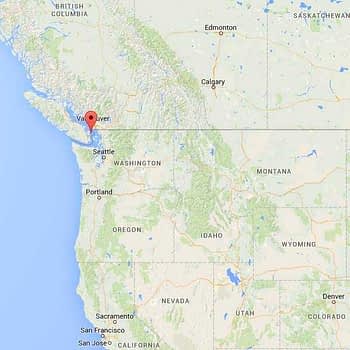
Pender Island, BC
The common native seaweed, kelp, is given credit for possibly helping the farm’s olive trees thrive, especially during one particularly cold winter. Pender Island had dipped to minus 12 degrees celsius for five days in a row. Though the Waterlea Farm trees had some frost damage, when Butt pruned back the dead wood in spring, the trees were loaded with blossoms.
“They had no longstanding damage from that cold spell,” Butt said, “even though the trees were quite young then.”
Kelp has long been used as a soil amendment for various crops, and while Butt agrees olives don’t really need fertilizer, he feels the micro nutrients in kelp have made a positive difference in his olive trees’ production. “Kelp and (other) seaweeds are packed with micro nutrients and mineral elements,” Butt said. “It definitely boosts growth and builds resilience.” He said that he’s used it on his trees once every year.”
The other factors that help boost the Pender Island olives are the layout of the grove and the farmer’s pruning methods. Waterlea Farm’s olive trees grow on a Southwest slope with good drainage and full sun all day when the sun is out. He further enhances the availability of the island’s sunlight by pruning his trees in the open vase shape. This method calls for pruning the central leader branch out, which allows more sunlight to reach in through the top of the trees.
The trees on Waterlea Farm have so far produced enough quality fruit for the farmer to process dozens of jars of both black and green olives. For now, he shares them with family and friends in preparation for gaining knowledge and increased production for future sales. He states that his trees’ production is more consistent each year.
And that consistency will, according to Butt’s plans, lead to producing his country’s first extra virgin olive oil grown and milled in Canada. Because he’s the only one currently considering commercial production of made-in-Canada olive oil, he stated the purchase and operation of the mill would be his responsibility, at least for the initial phase.
Though Butt would be the owner of the olive oil mill, there is talk near his location about individual nearby non-commercial olive growers having interest in communal milling days. While Waterlea Farm doesn’t sell olive trees themselves, tours of the farm have generated interest in growing olive fruit from other Gulf Island and surrounding area property owners. In 2009, the Saturna Olive Consortium was established to sell olive trees to the Gulf Islands, Vancouver Island, and Canada’s western lower mainland. So olive fruit growing in southwest Canada is making its way into the non-commercial sector as well.
The local food movement is seen as fueling a large and supportive market for Waterlea Farm’s Canadian olive products. Individual consumers as well as professional urban chefs who embrace the buy-local movement have been noted as potentially eager and reliable customers.


